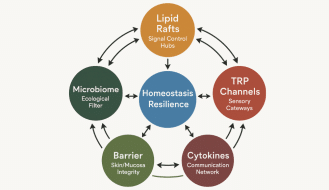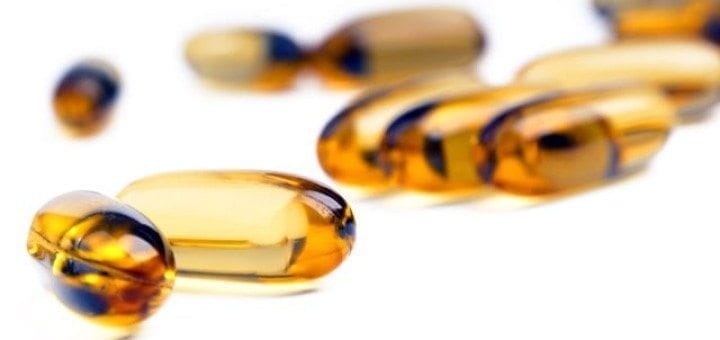Stop Talking About Omega-3
Two years ago, I was giving a lecture to a cancer support group about omega-3 fatty acids. After my lecture on the benefits of omega-3 for cancer prevention (and as an adjunct to chemotherapy) one of the men came to speak with me.
“I’m so inspired,” he said, “I’m going to WalMart this afternoon to buy fish oil capsules.”
Before I could stop him, he was out the door – and that’s when I knew my lecture had failed. In my efforts to concentrate on the benefits of omega-3, I had neglected to tell the group that taking omega-3 wasn’t enough. I hadn’t said anything about the dose, the type of omega-3, the quality of the oil, and the oxidation values that would determine whether or not this man actually benefitted from his supplement.
Since that experience, I have rewritten my lectures to include those key points. But when I read about omega-3 in the news, I see most content fall into the same trap. The articles paint omega-3 in such broad strokes, they end up misinforming us.
So in talking about omega-3 or fish oil, how do we begin sorting out whether the fishy stuff is good for us or whether it offers, as a recent New York Times article implied, “no benefits”?
We need to start asking questions.
How Much Omega-3 Do You Need to See Benefits?
The dose needed to produce results is one of the most important, but painfully ignored, aspects of omega-3 literature. Last summer Forbes covered a fish oil study testifying to the brain boosting benefits of omega-3 fatty acids. In a 7-year-long trial from Rhode Island Hospital, researchers found that fish oil prevented brain shrinkage and the cognitive decline of older adults. Halfway down the page, however, the article revealed: “The study did not specify the amount of fish oil taken, nor the percentage of EPA and DHA in the supplements.”
Unfortunately, more omega-3 studies than you can imagine do not to include any information about the fish oil dose used or the amounts of EPA/DHA in the supplement (for those new to talking about omega-3, EPA/DHA are the most plentiful molecules of the omega-3 family and the fatty acids most often cited as producing health benefits).
This is a big problem. As we learn from the rheumatologists, dose can help explain why some omega-3 studies show brilliant results, while others yield no benefits. For instance, numerous research studies reveal omega-3 can have a powerful anti-inflammatory effect — but only at a dose exceeding 2700 mg of EPA/DHA per day, or roughly 8-10 regular fish oil capsules. Below that dose, noted rheumatologists agree you will most likely never experience the anti-inflammatory effect.
In spite of the relevance of the dose question, most journalists never discuss it (the Forbes article was refreshing in at least acknowledging the absent information).
Following the New York Times’ article “Fish Oil Claims Not Supported by Research,” world-leading omega-3 researcher Dr. William Harris commented that many of the recent fish oil studies use low doses of omega-3 for shorter periods of time – and often work with older and ill patients who are also being treated with heart medicines. Under these circumstances, it makes sense the studies will find no benefits to using omega-3 supplements. This information can be valuable too in that we learn what factors contribute to a successful outcome or not. But to simply conclude that omega-3 has no benefits without discussing dose and other influencing factors leaves the public with only a half-true idea of what omega-3 can and cannot do. Instead of leaving consumers in the dark, journalists and scientists need to include this information whenever available.
Fish Oil, Vegetable Omega-3 Sources & Ethyl-Esthers
The dose discussion bleeds into another crucial omega-3 topic: What type or source of omega-3 do you need? Should the omega-3 come from fish, cod liver oil, or plant sources? Has it been ethyl-estherized – a process in which the omega-3 is chemically manipulated to boost its EPA/DHA levels? The answers to these questions not only provides information about the ratios of the omega-3 fatty acids in the supplement or food, it also speaks to the physiological effects of the omega-3 in the body.
This more nuanced discussion rarely makes it into mainstream media, resulting in glaring misrepresentations. For instance, both the New York Times and a recent article in Slate wrote that scientists will have an answer about whether or not fish oil is good for heart health in just three years, after Harvard publishes its VITAL study. There’s only one problem: Harvard is not using fish oil, but a low-dose synthetic version combined with vitamin D. How such a study can make conclusions about the benefits of a natural, full-spectrum fish oil is beyond comprehension.
Stop Talking about Omega-3
It is not enough to simply talk about omega-3, and we do everyone a disservice when we keep the discussion general. Omega-3 is complicated. It is a family with many members, and when it comes in cod liver oil, the EPA/DHA omega-3s are balanced with more than 60 other naturally occurring fatty acids. We are only at the cusp of naming them all, let alone understanding their functions within the human body.
In the last 40 years, omega-3 has occupied the scientific stage as one of the most researched molecule groups in nutrition. More than 27,000 scientific articles and research studies have investigated the health benefits of this “fishy” substance. Still, we have a lot to learn. To this day, researchers debate the most effective dose of omega-3 for treatments and preventive health. Researchers can’t agree how the ethyl-etherized fish oils found in prescription omega-3 drugs compare to full-spectrum oils that contain the full range of omega-3 fatty acids. And we still haven’t addressed the rampant problem of rancidity, which may determine whether a supplement provides a good outcome or not.
Unfortunately, the current environment is not helping us get closer to those answers. From researchers to journalists to bloggers, we have to be more specific, and as a minimum, include information about oil type, freshness levels, dose and length of treatment. Then we can look at impact of gender, genetics, age and health conditions.
It is critical we start changing the omega-3 conversation. While the man from my lecture left before I could clarify, I try never to repeat the same mistake. So please, let’s stop talking about omega-3. We have to move beyond the generalities when it comes to a matter as important as our health.
Popular posts



Related posts






